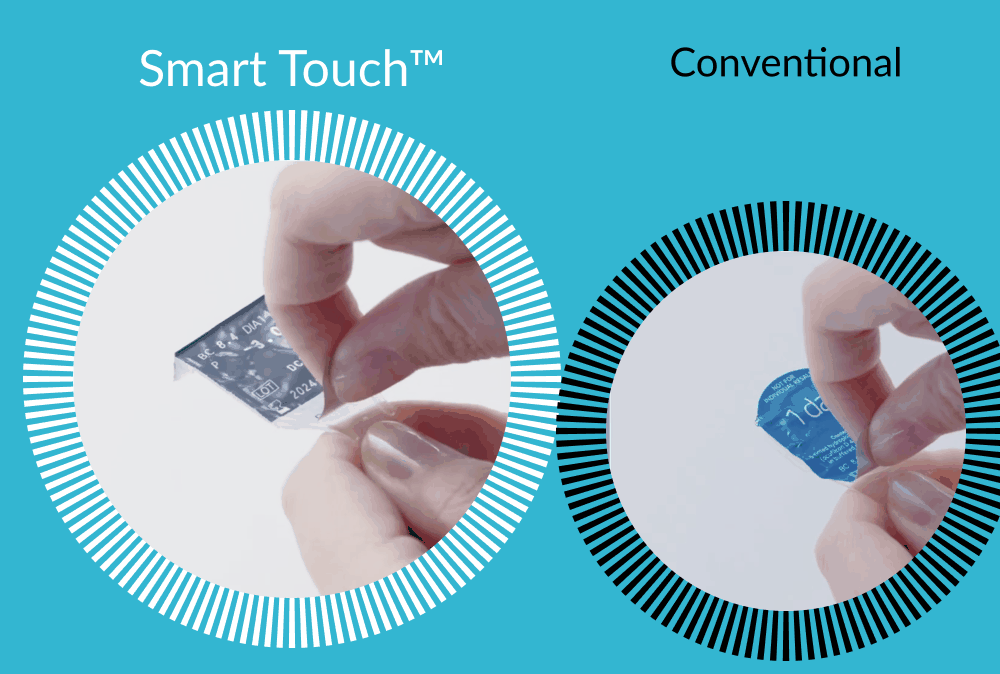Technological innovation has touched our lives in immeasurable ways, from city infrastructure to personal entertainment and beyond. Even our health and conditions have been improved by the right tech innovations; contact lenses were one such innovation, having been safely pioneered as recently as the 19th century. But there are more recent developments which could change the lives of contact lens users forever; what are they?
Smart Touch Contact Lenses
While Smart Touch lenses are a relatively simple innovation, it is often the simple innovations that have the most fundamental impact on contact lens users. Smart Touch lenses are a new type of contact lens produced with a breathable material to promote eye health throughout the day.
The key innovation lies in the packaging; Smart Touch contact lenses are provided in a bespoke blister packaging solution that delivers the lenses face-up. This ensures that the user never needs to touch the inner surface of the lens, keeping it hygienic and allowing for quick, unobtrusive application. These contact lenses provide innovative solutions for lens-wearers, and represent the power of slight technological improvements to existing products.
Light-Adapting Contact Lenses
A key area for research and development in contact lenses is one that has already seen widespread usage by spectacles-wearers. Light-adaptive materials have been used in electronics and other technological innovations for decades, and the science is allowing materials to make use of this quality in smaller settings.
Light-adapting glasses are a popular product amongst those who wear glasses, protecting the eyes from sunlight and UV rays automatically. Development is underway to provide a form of contact lens that can provide the same benefits, without the need to wear glasses at all.
Antihistamine-Releasing Contact Lenses
Another innovation comes not from the world of material science, but instead from the field of medical science. Many contact-lens wearers are also allergy sufferers, with pollen and pet allergies alike causing significant discomfort for those wearing contacts.
Recently, contact lenses have been made commercially available that secrete antihistamines directly, allowing lens wearers to replace eye drops or pills with their regular daily contacts. These contacts represent a step change in the way those with poor vision can tend to their eye health, especially in allergy season.
Vision-Enhancing Contact Lenses
Seemingly coming from the world of science-fiction as opposed to verifiable science, there are also significant developments in the creation of a zoom-enabled contact lens. The proposed lens would be controlled via blinks, and enable the user to enhance their vision without the use of a separate device.
The concept may seem far-flung, but is much closer to a commercial reality than you may think; indeed, the first working prototype for such a lens was developed in 2015. This simple mechanical application heralds the introduction of significant, pie-in-the-sky contact lens designs to active development – indicating a bright and technologically-powered future for the contact lens industry.












